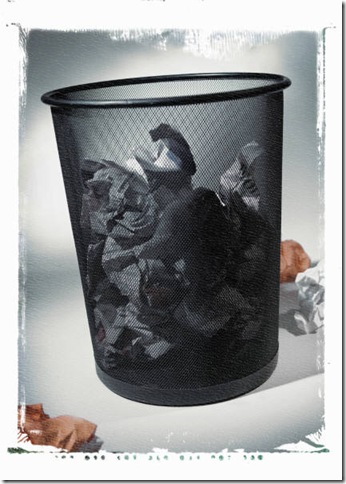Four Things Candidates Do To Shoot Themselves In The Foot While Conducting A Job Search
As the job market begins to pick up, more opportunities for candidates will arise. For those candidates who have been looking for some time this may be your chance to land the job you really want. Here are the four things that I find that candidates continually do to mess up a good opportunity:
1) Conducting your search the same way you did it the last time. Candidates seem to think this is 2006 or 2007 and all they have to do is the same things they did back then to find a job. WRONG. It’s not only 2012, but the market and the tools are completely different than they were back then. Candidates need to come up to speed quickly. It is not unusual for me to meet candidates that wasted the first three months of their search.
To adapt to 2012 you must embrace social media. You must become an expert on LinkedIn and then leverage this tool, with groups, updates, postings and connections. Instead of sitting in your pajamas searching the job boards you now should be leveraging LinkedIn.
2) Resumes and cover letters are another problem area. A one size fits all resume will not cut it. Companies are seeking very specific skills and experiences that more often than not a generic resume doesn’t address. It is acceptable to use this generic resume to post on the job boards, but if you are targeting a company, responding to an ad or attempting to connect with a recruiter for a search, you must redo the resume so it targets the specific issues they are seeking like a laser beam.
A cover letter is not a resume. You cannot just write a nice cover letter with these updates and attach it to the generic resume. What will happen if your cover letter gets separated from the resume? Then what? Take the time to update your resume.
3) Interviewing is much more than explaining your background. It is about connecting with the interviewer. For most interviews, you wouldn’t even be there if the interviewer didn’t believe you met the basic skills and experience. So rule number one is listen, hear and answer the question asked. Do it in a way that connects with the company’s culture and the interviewer. For example, if your background is in very large companies and you are interviewing at a small company, constantly emphasizing how you managed a large staff and had a budget that was more than the sales of the company, is probably the best way to communicate that you need a large staff and a lot of resources to be effective. This is something a small company doesn’t have. You made the fatal error of not adapting your experience to the company. Think about your audience and what they want and need.
4) Networking too often burns people out because they aren’t focused on the purpose of networking. Over the years people, especially candidates, have come to believe that networking is all about meeting a lot of people. Get a lot of first level contacts on LinkedIn. The one with the most contacts wins. Nonsense. Networking is about the right contacts not the number of contacts. The one that has the ability to take a contact and turn it into a connection generally wins. It is far better to have one hundred strong connections, than it is to have 1,000 contacts that don’t know you and forget you within twenty-four hours of meeting them.
Stop going to every networking meeting in Orange County. Instead, target three or four that really make sense for you. I suggest one in your functional area, one in your industry, one at a peer level, and one with the types of advisors that connect with the people who will hire you. Build strong relationships with the members of these four groups and it will do more good than running to all the other networking groups.
To download the free chapter on Conducting an Effective Phone Interview from our book “This Is NOT The Position I Accepted” CLICK HERE and then click on the Free Search Resources link.
How effective is your job search? If you are not sure, download our free 8 Matrix Job Search Self-Assessment Scorecard. CLICK HERE and then click on the Free Search Resources link.
I welcome your thoughts and comments.
Brad Remillard






